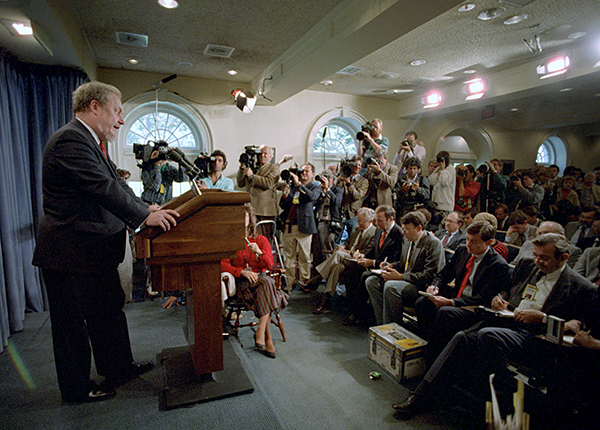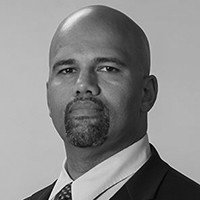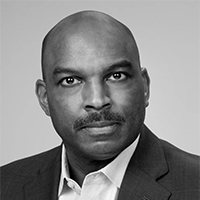Historic Document
Neutral Principles and Some First Amendment Problems (1971)
Robert H. Bork | 1971

Courtesy: Ronald Reagan Library
Summary
Robert H. Bork (1927-2012) was a law professor and a political conservative principally known for his writings on anti-trust law when he delivered the following lecture in 1971. Later, as Solicitor General of the United States, he would fire the Watergate Special Prosecutor, Archibald Cox, at the insistence of President Nixon, and would also serve as a federal Court of Appeals Judge. In 1987, the Senate controversially rejected his nomination to the Supreme Court by President Ronald Reagan in the midst of heated public criticism of his legal and constitutional views. In response to the Warren Court Revolution, Bork was an early advocate of originalism. Although Bork was not confirmed to the Court, this 1971 lecture would become a touchstone in the development of conservative theories of constitutional interpretation over the next several decades, influencing the interpretive approaches of many leading scholars and key Supreme Court justices such as Antonin Scalia
Selected by

Christopher Brooks
Professor of History, East Stroudsburg University

Kenneth Mack
Lawrence D. Biele Professor of Law, Harvard Law School
Document Excerpt
The subject of the lengthy and often acrimonious debate about the proper role of the Supreme Court under the Constitution is one that preoccupies many people these days: when is authority legitimate? . . .
Our starting place, inevitably, is Professor Herbert Wechsler's argument that the Court must not be merely a ‘naked power organ,’ which means that its decisions must be controlled by principle. ‘A principled decision,’ according to Wechsler, ‘is one that rests on reasons with respect to all the issues in a case, reasons that in their generality and their neutrality transcend any immediate result that is involved.’ . . .
Judge J. Skelly Wright, in an argument resting on different premises, has severely criticized the advocates of principle. . . .
But Judge Wright’s main point appears to be that value choice is the most important function of the Supreme Court, so that if we must take one or the other, and apparently we must, we should prefer a process of selecting values to one of constructing and articulating principles. . . .
Such a man occupies an impossible philosophic position. What can he say, for instance, of a Court that does not share his politics or his morality? . . .
It follows that the choice of ‘fundamental values’ by the Court cannot be justified. Where constitutional materials do not clearly specify the value to be preferred, there is no principled way to prefer any claimed human value to any other. The judge must stick close to the text and the history, and their fair implications, and not construct new rights. . . .
The equal protection clause [of the Fourteenth Amendment] has two legitimate meanings. It can require formal procedural equality, and, because of its historical origins, it does require that government not discriminate along racial lines. But much more than that cannot properly be read into the clause. . . .
The words are general but surely that would not permit us to escape the framers' intent if it were clear. If the legislative history revealed a consensus about segregation in schooling and all the other relations in life, I do not see how the Court could escape the choices revealed and substitute its own, even though the words are general and conditions have changed. It is the fact that history does not reveal detailed choices concerning such matters that permits, indeed requires, resort to other modes of interpretation. . . .
A court required to decide Brown would perceive two crucial facts about the history of the fourteenth amendment. First, the men who put the amendment in the Constitution intended that the Supreme Court should secure against government action some large measure of racial equality. . . . The Court cannot conceivably know how these long-dead men would have resolved these issues had they considered, debated and voted on each of them. Perhaps it was precisely because they could not resolve them that they took refuge in the majestic and ambiguous formula: the equal protection of the laws.
But one thing the Court does know: it was intended to enforce a core idea of black equality against governmental discrimination. . . . The Court must, for that reason, choose a general principle of equality that applies to all cases. . . .
There appear to be two proper methods of deriving rights from the Constitution. The first is to take from the document rather specific values that text or history show the framers actually to have intended and which are capable of being translated into principled rules. We may call these specified rights. The second method derives rights from governmental processes established by the Constitution. These are secondary or derived individual rights. This latter category is extraordinarily important. This method of derivation is essential to the interpretation of the first amendment, to voting rights, to criminal procedure and to much else. . .




